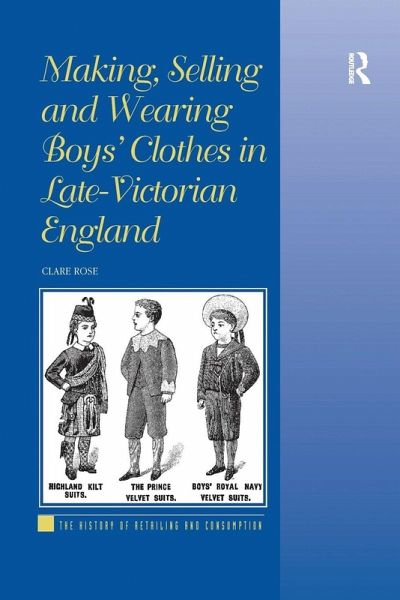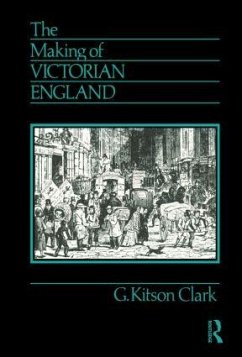
Making, Selling and Wearing Boys' Clothes in Late-Victorian England
Versandkostenfrei!
Versandfertig in 1-2 Wochen
70,99 €
inkl. MwSt.
Weitere Ausgaben:

PAYBACK Punkte
35 °P sammeln!
Drawing upon a remarkable variety of documentary evidence, this study argues that much of Britain's consumer culture and modern business practices was influenced by the ready-to-wear market in boys' clothes. Through a detailed visual and statistical analysis of these sources, linking the design and retailing of boys' clothing with social, cultural and economic issues, it shows that an understanding of the production and consumption of the boys clothing is central to debates on the growth of the consumer society, the development of mass-market fashion, and concepts of childhood and masculinity.














